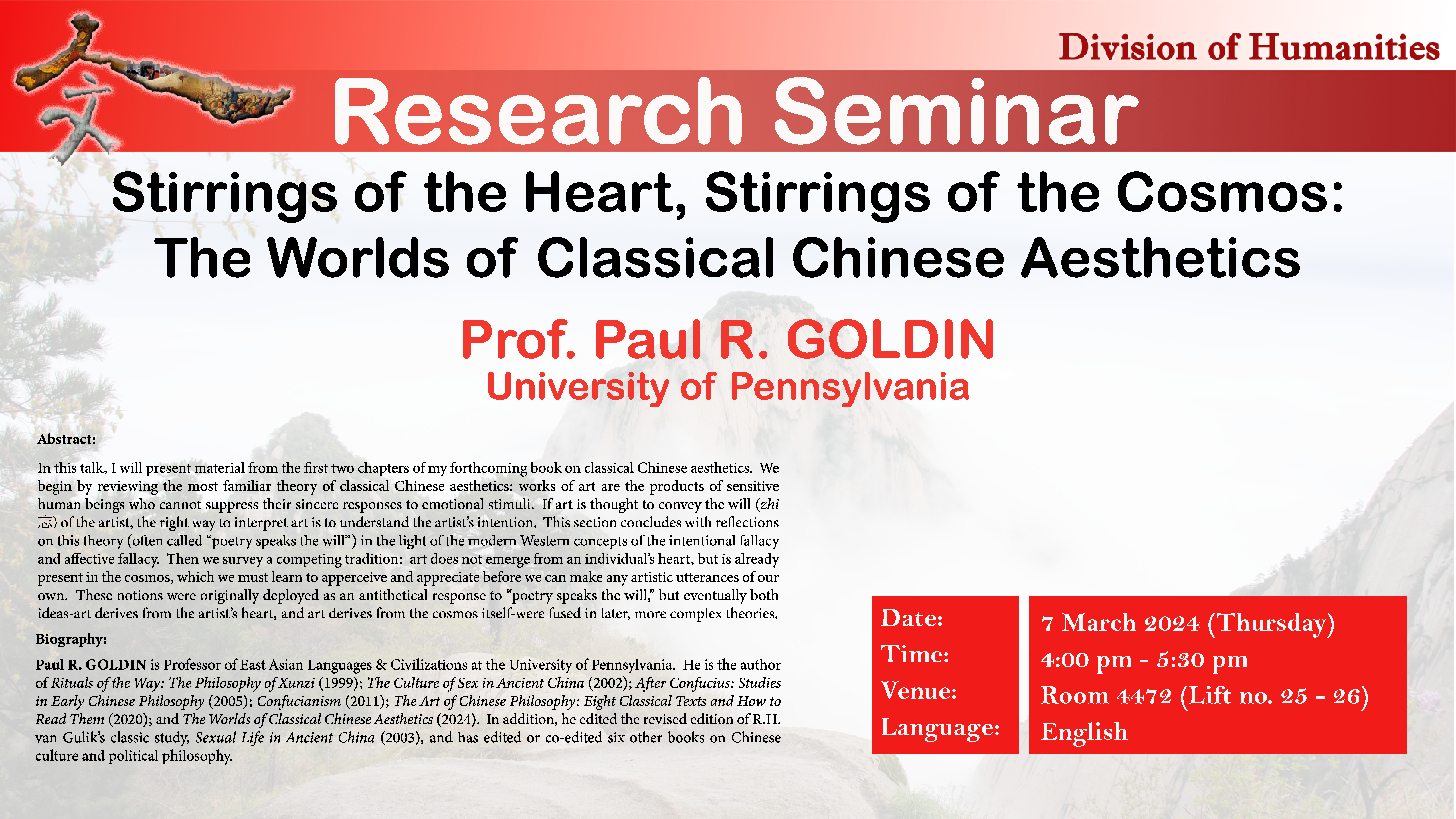Abstract:
In this talk, I will present material from the first two chapters of my forthcoming book on classical Chinese aesthetics. We begin by reviewing the most familiar theory of classical Chinese aesthetics: works of art are the products of sensitive human beings who cannot suppress their sincere responses to emotional stimuli. If art is thought to convey the will (zhi 志) of the artist, the right way to interpret art is to understand the artist’s intention. This section concludes with reflections on this theory (often called “poetry speaks the will”) in the light of the modern Western concepts of the intentional fallacy and affective fallacy. Then we survey a competing tradition: art does not emerge from an individual’s heart, but is already present in the cosmos, which we must learn to apperceive and appreciate before we can make any artistic utterances of our own. These notions were originally deployed as an antithetical response to “poetry speaks the will,” but eventually both ideas—art derives from the artist’s heart, and art derives from the cosmos itself—were fused in later, more complex theories.
Biography:
Paul R. Goldin is Professor of East Asian Languages & Civilizations at the University of Pennsylvania. He is the author of Rituals of the Way: The Philosophy of Xunzi (1999); The Culture of Sex in Ancient China (2002); After Confucius: Studies in Early Chinese Philosophy (2005); Confucianism (2011); The Art of Chinese Philosophy: Eight Classical Texts and How to Read Them (2020); and The Worlds of Classical Chinese Aesthetics (2024). In addition, he edited the revised edition of R.H. van Gulik’s classic study, Sexual Life in Ancient China (2003), and has edited or co-edited six other books on Chinese culture and political philosophy.
